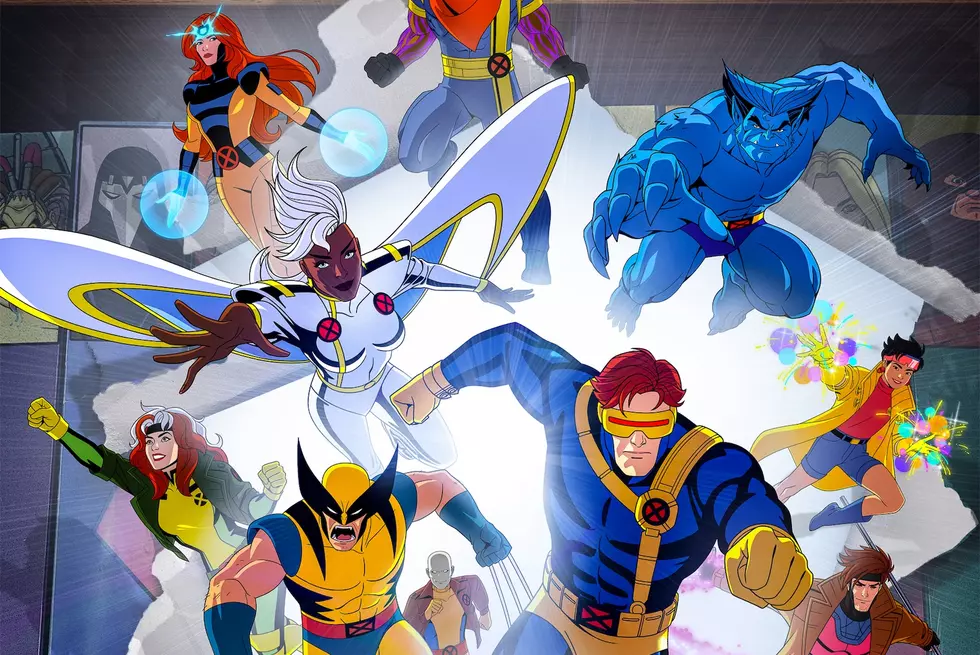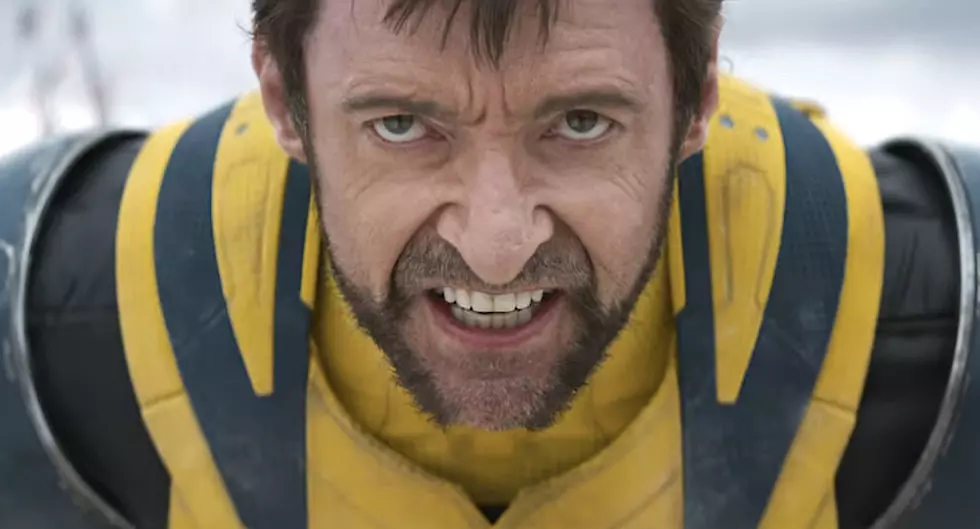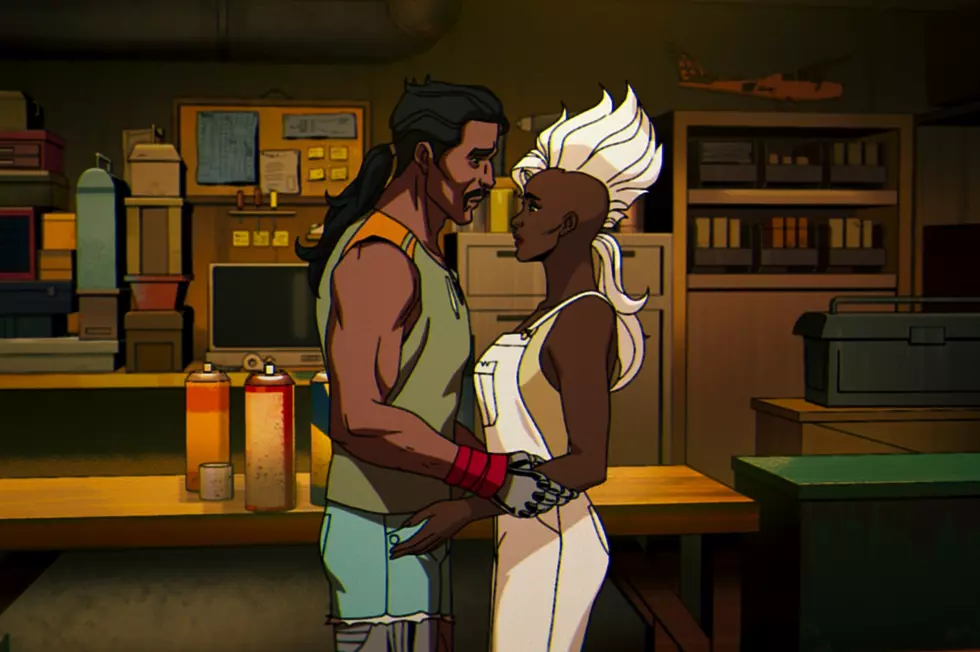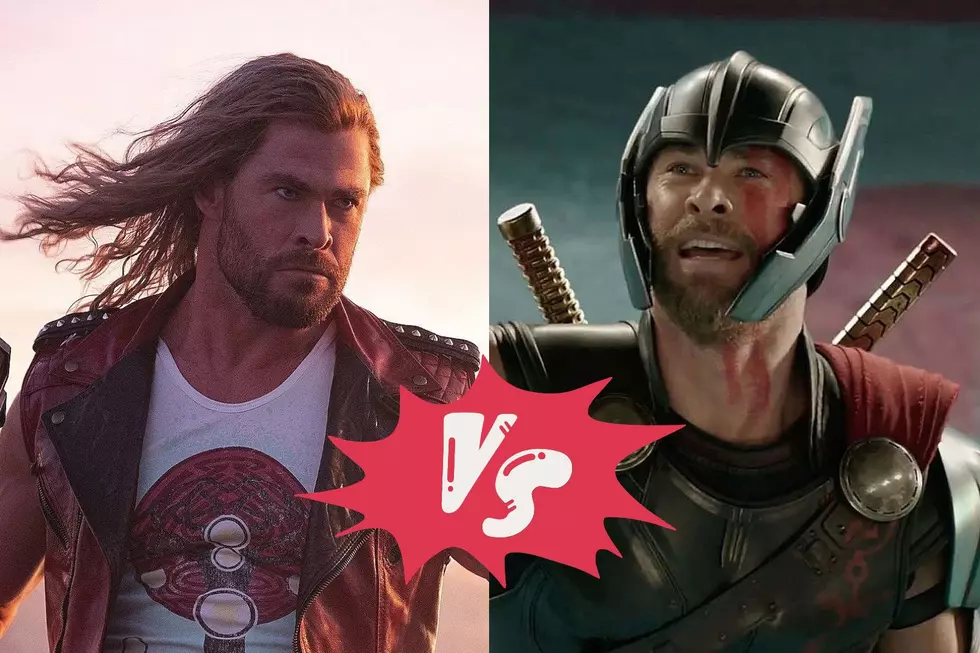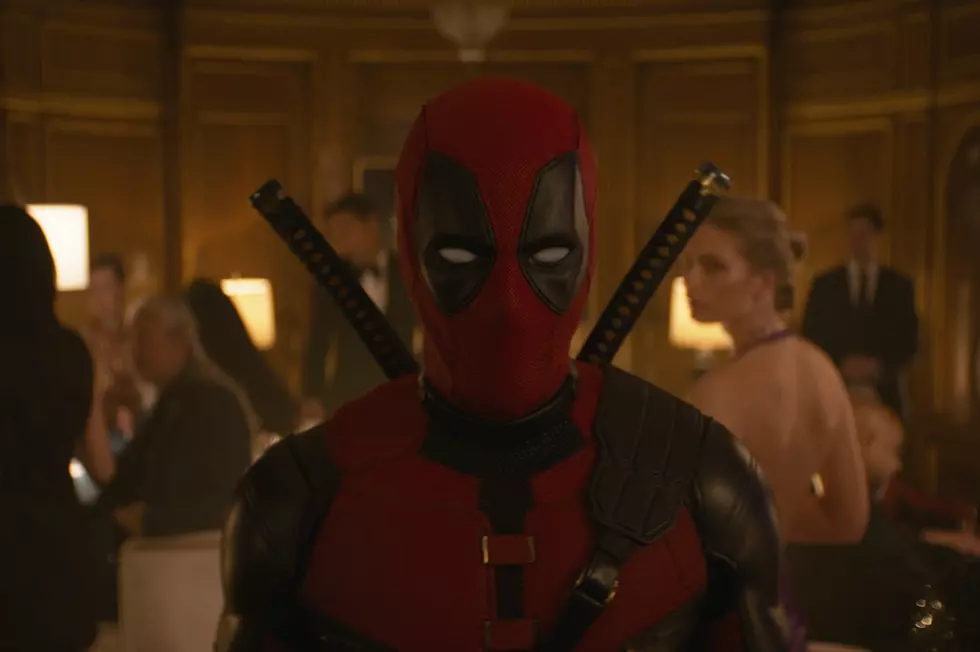
‘Agent Carter’ Season Finale Review: ‘Valediction’
The terrorist incident that begins tonight’s finale of Agent Carter will inevitably draw comparisons to the very similar chemical weapon deployed in Kingsman: The Secret Service. But where Matthew Vaughn’s film revels almost gleefully in the energetic violence, Agent Carter looks on the aftermath of that violence with grave horror. It’s a significant distinction—even with the vintage look and tone of Agent Carter, which still has its fair share of cheeky fun, the show still gives these threats and harrowing moments their proper gravity.
I’m not knocking Kingsman, which earns every beat of that excessive church sequence. But Vaughn is employing a different tone from beginning to end, while Agent Carter is very much a student of the MCU school. Not only has the series successfully replicated the look and feel of the first Captain America film, but it’s carried with it a confident sense of self, setting it apart from the MCU just enough while still following some specific tonal guidelines.
“Valediction” is what the entire season has been building to—a lovely marriage of action and emotional beats that echoes a time when we first met Peggy. Even still, the action and intrigue are just as riveting as ever, as Peggy and the gang try to foil Ivchenko’s ploy and fail to put themselves a step ahead. Agent Carter has never leaned too heavily on action; that’s just not what makes it exciting. The show follows its own rhythm, one that’s a little more laid back than the Marvel films. And having just eight episodes to play with gave the series some much-needed parameters, unlike most network shows, which have a little too much room to play with 22 episodes.
The opening scene of “Valediction” is grisly and exceedingly grim as Peggy and the SSR look upon the aftermath of Stark’s Midnight Oil. It’s that weapon that brings Howard back into the fold, as he can’t ignore the gnawing sense of guilt that comes with the knowledge that people are using his inventions for these terroristic purposes, destroying real human lives. Thanks to Ivchenko’s hypnosis, we also get the answers Peggy and the SSR have been after all season: Howard was at Finnau because he learned that our government had deployed Midnight Oil there, and he needed to see the devastation for himself. Our Dr. Ivchenko here was deeply affected by the losses incurred at Finnau, hence his mission of revenge.
That mission is well thought-out, from a creative standpoint: Ivchenko wants to deploy Midnight Oil on Time Square during Veterans Day, and although neither Ivchenko nor anyone else on the show explicitly states it, the doctor’s goal is very clearly to make a sort of horrific statement—turning U.S. soldiers into the bloodthirsty monsters Ivchenko believes them to be.
Of course Peggy and the SSR save the day, and there’s a great showdown between Peggy and Dottie (aka Black Widow), but the real meat of the episode comes in the last 10 minutes or so. Ivchenko preys on a guilt-stricken and emotionally weakened Howard, hypnotizing him easily into flying one of his own planes, loaded with Midnight Oil, into Time Square. Ivchenko uses Howard’s own desires against him: under hypnosis, Howard believes he has found the place where Steve Rogers’ plane crashed and that he can bring this beloved hero back home for himself, for America and for Peggy, most of all.
The finale uses callbacks to Captain America to elegantly frame the episode. We open with the Captain America radio play recreating Cap’s final moments, with Peggy Carter fictionalized as Betty Carver, her deeply personal moment of loss and grief filtered through saccharine melodrama and stripped of its honesty for the entertainment of the public. On the other end, the finale’s climax has Stark flying over the water to Manhattan, as Peggy tries to talk him down from the radio—the same way she communicated with Steve on his way down. She couldn’t keep Steve Rogers from sacrificing himself and driving that plane full of weapons into the arctic, and it’s that desperation and regret that creates an even more powerful sense of urgency with Howard, whose actions here are a sad inverse of Steve’s own.
So why isn’t Peggy angry when Thompson takes credit for her heroics to the Senator? It’s the same reason she’s not throwing a fit over the Captain America radio program—she can’t help the way others perceive her, and she can’t allow every injustice to bother her. She knows her value, she knows the good she’s done, and she doesn’t need public recognition (a medal, a reward, a handshake, or an honest fictional account of her story) to validate what she’s done. She doesn’t need that recognition to prove that she saved lives, but someone like Thompson, with his masculine ego, does. It’s what keeps him going.
Agent Carter’s gender politics aren’t perfect, and yes, they are a little basic, but given that many of the viewers tuning in are likely comic book or MCU fans, these introductory gender politics feel appropriate. There’s something disappointing, of course, about the way that Peggy says she doesn’t need the recognition because she knows her value. It doesn’t seem right for her to stand back and let men walk all over her again, especially not now that they know how great she truly is. But the end of the episode seems to make a statement, that no matter what a woman like Peggy does, she’ll never be fully accepted or respected as an equal. That’s a sad statement, but one that has a truthful ring to it. It’s frustrating to watch Peggy stand aside for Thompson while he happily takes the credit for her work, but it doesn’t negate all the good she’s done.
Additional Thoughts:
- “I know what you’re thinking Miss Martinelli, and yes, the drawing room has recently been refurbished in the neo-classical style.”
- “I appreciate the finer things. I just don’t want to know what’s happened in and on the fine things.”
- I like to imagine that Peggy happened to dump Steve’s blood on a timid school of fish, who then transformed into super-fish and started punching sharks in the face.
- It took me eight episodes, but I get it: Thompson and Sousa are Peggy’s Betty and Veronica. Thompson is totally the Veronica, though.
- Hey! Hey! Let’s talk about that tag at the end! Toby Jones appears as Arnim Zola, Captain America genius villain and new cellmate of Dr. Ivchenko. And while Ivchenko has plenty of idealism and is highly persuasive, Arnim Zola is doubly so. These two are a very dangerous pairing, and if I didn’t care about a second season of Agent Carter, I definitely do now.
More From ScreenCrush

